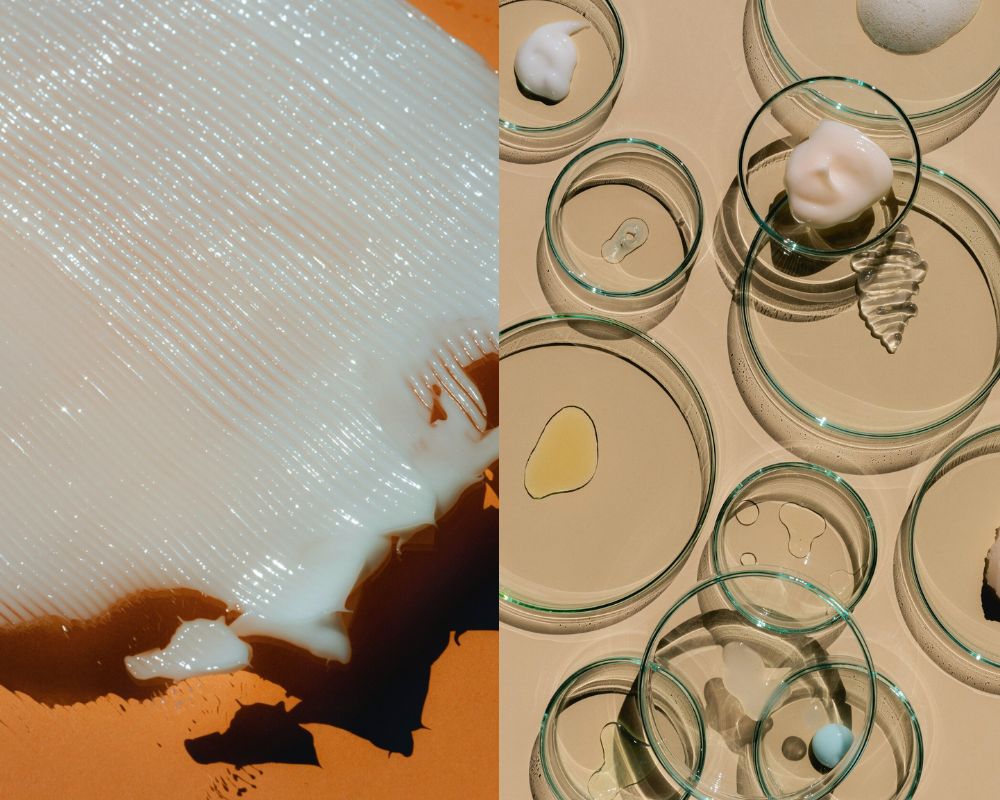What is Retinol Cream?


You may have heard of all the different types of retinoids — retinol, retinal, retinoic acid, retin-A — all forms of Vitamin A that are widespread in popular skincare products. Retinol (the over the counter version of retinoids) has seemingly become the must-have solution for treating a number of unwanted skin concerns.
Beloved by dermatologists for good reason, retinol contains some of the most highly studied anti-aging compounds. It’s proven to have a drastic difference in the skin’s appearance by increasing the thickness of the epidermis and showing a reduction in fine lines and wrinkles.¹
For those who struggle with frequent acne or acne scarring, the ingredient may be recommended for eliminating breakouts by regulating oil production in the skin and stimulating cell turnover. Additionally it’s a go-to for treating hyperpigmentation and enlarged pores, making it a skincare guru's staple ingredient.
If you’re interested in implementing retinol into your skincare regime but don’t know the different types of products it appears in—there are creams, serums, emulsions, toners… the list goes on. Narrowing down which retinol-based product to choose can be tricky, especially given some of the most common side effects include dry skin or flakiness (more on this below). And depending on the product, too high a percentage of retinol can also cause skin irritation. That’s why we recommend looking at retinoid formulations that help to balance these effects with hydrating ingredients that are friendly for all skin types.
If you are new to (or slightly overwhelmed by) the complex world of retinol and the multitude of benefits it offers, an easy way to gradually incorporate it into your routine is with a retinol cream. A retinol cream is a moisturizer that combines lower percentages of retinol with other hydrating ingredients. Retinol creams contain emulsifiers, thickeners and soothing agents which give them a thicker consistency designed to hydrate and improve texture and tone. For those with sensitive skin who may be more reluctant to try, using a retinol cream is going to be the most gentle option, less likely to dry out the skin or cause redness.
If you find your skin needing a more intense treatment, a retinol serum may be a more ideal choice. Serums typically have a slightly lighter texture than a cream, with a higher retinol concentration and possible other active ingredients like vitamin C, vitamin E, or niacinamide. Retinol serums will penetrate through the skin faster due to the liquid consistency and are less likely to clog pores, essential for those who deal with acne.
With years of advanced scientific research and evidence to back it, retinol has become a trusty choice when dealing with a variety of skin concerns. Despite how well retinol helps to regulate desquamation (skin shedding), the unintended side effects can easily cause damage to the skin - instead of improving it.
By using too high a strength, not moisturizing enough after application, or applying a retinol more frequently than suggested, retinoids can have the opposite effect of what they’re designed for—even resulting in pro-aging (something no one is looking for). Itchiness, redness, or scaly patches can appear as well if not used carefully. If you experience eczema or rosacea, we definitely recommend taking caution as retinol tends to aggravate these skin conditions.
For these reasons, customers are opting for retinol alternatives that still achieve the same end result without the added risk of potential irritation. A favorite alternative of ours is bakuchiol—a plant based, hydrating extract with anti-inflammatory properties that speed up cell regeneration.
Our Power Brightening Bicelle Serum features bakuchiol as a main ingredient and is essential for boosting collagen production, treating hyperpigmentation and brightening skin tone. Similar to a retinol cream with its thick lotion-like texture, the serum deeply absorbs into the skin while providing endless hydration with additional ingredients like niacinamide, hyaluronic acid, ceramides, and squalane. Designed for daily use, the product is a must-have for achieving healthy skin that’s not compromised by side effects.
As with trying any new product, we always recommend researching the pros and cons of a product before testing it out. When it comes to retinol, understanding the many benefits and specific risks, correct application and your personal skin type are key factors to consider when searching for your next skin-saver!
Kong, R., Cui, Y., Fisher, G.J., Wang, X., Chen, Y., Schneider, L.M. and Majmudar, G. (2016), A comparative study of the effects of retinol and retinoic acid on histological, molecular, and clinical properties of human skin. J Cosmet Dermatol, 15: 49-57.